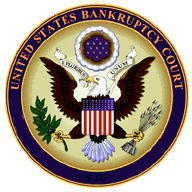
THINGS YOU MAY NOT HAVE KNOWN ABOUT BANKRUPTCY | HOW TO ESTABLISH CREDIT
 If you or a loved one is living under the stress of being in debt, this takes a real toll on your health and your well-being. The bright side of the situation is that qualifying consumers can file for bankruptcy protection to help them reorganize their finances and get back on their feet again. Here are some things you may not have known about filing bankruptcy:
If you or a loved one is living under the stress of being in debt, this takes a real toll on your health and your well-being. The bright side of the situation is that qualifying consumers can file for bankruptcy protection to help them reorganize their finances and get back on their feet again. Here are some things you may not have known about filing bankruptcy:
Reduce Monthly Payments
A Chapter 13 bankruptcy filing allows consumers to keep many of their assets and cut their monthly payments by reorganizing their debt. To qualify, debtors will need to still earn a regular income, enough that payment negotiations will be made with their mortgage lender, credit card companies, and other lenders to repay a percentage of what their original debt is. This type of filing will have a negative effect on the best credit score, but you will learn how to establish credit while you are working through the process.
Debt Relief
A Chapter 7 bankruptcy filing offers consumers complete debt relief for all debts that qualify for discharge. The warning with this type of bankruptcy filing is that the consumer is a homeowner, this asset will likely be forfeited as part of the proceedings. This type of filing will have a negative effect on the best credit score, but you will learn how to establish credit after the bankruptcy is discharged.
Get Rid of Credit Card Debt
If credit card debt is weighing you down, a Chapter 7 bankruptcy filing generally will void any and all debts that are owed to these types of financing companies. All of your credit cards must be filed in your bankruptcy paperwork to alleviate the debts and all of your agreements will be voided. As part of this debt relief, you will no longer have access to use these cards in the future. However, if you are already deeply in debt, the chances are good that you were not able to use them anyhow.
Save Your Home
Filing for bankruptcy does not automatically mean you have to move out of your home. If your home is in Pre-foreclosure or foreclosure proceedings and you are unable to make up the payments you are behind, Chapter 13 gives you an opportunity to renegotiate your mortgage payments in a bid to keep your home. This will impact the best credit score, but it offers people an option to keep their homes.
Forfeiting Your Home
In some situations, it is best for consumers to forfeit their homes. While there is no doubt that this is a difficult decision to make, if your home mortgage is "underwater" or you owe more on the dwelling than what it is currently worth, this can save you a lot of money in interest, taxes and the costs of refinancing. After you have gone through the process, you will be able to learn how to establish credit for future use.
Trusted Counsel Can Help You Out
If you are facing financial troubles, it is always a good idea to seek the advice of trusted legal counsel to discuss your situation. A lawyer who specializes in bankruptcy laws will be able to offer the best advice on what the best options are for you. If you decide that bankruptcy is the best solution for your financial troubles, your attorney will serve as your advocate and will be able to answer any questions you have about the proceedings. He is there to help you get through a challenging time in life so you can get a fresh start.